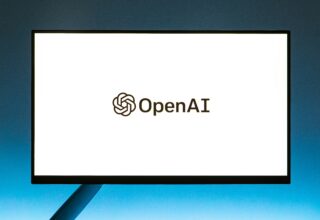By becoming a member of our site, you can add the content you like to your favorites, and present the content you have produced or liked on the internet to our site visitors with the send content option.
Zaten bir üyeliğiniz mevcut mu ? Giriş yapın
By becoming a member of our site, you can add the content you like to your favorites, and present the content you have produced or liked on the internet to our site visitors with the send content option.
You Can Benefit from All Options Exclusive to Our Members by Registering

Next Content:
Artificial Intelligence in Business: Enhancing Productivity and Efficiency
- Home Page
- #AIinBusiness
- Artificial Intelligence in Business: Enhancing Productivity and Efficiency
Artificial Intelligence in Business: Enhancing Productivity and Efficiency

In today’s rapidly evolving business landscape, artificial intelligence (AI) has emerged as a transformative force, revolutionizing operations and unlocking new avenues for growth and innovation. From automating repetitive tasks to providing advanced data analytics and insights, AI is reshaping the way businesses operate, enhancing productivity, and driving efficiency gains across various industries.
At its core, AI refers to the simulation of human intelligence processes by machines, particularly computer systems. By leveraging advanced algorithms and vast datasets, AI technologies can perform tasks that typically require human intelligence, such as learning, reasoning, problem-solving, and decision-making.
One of the most significant benefits of AI in business is its ability to streamline operations and boost productivity. Through the automation of routine tasks and processes, AI frees up valuable time and resources, allowing employees to focus on higher-value activities that require human creativity and ingenuity. From customer service chatbots and virtual assistants to robotic process automation (RPA) in back-office functions, AI-driven solutions are revolutionizing workflows and driving operational efficiencies across organizations.
Moreover, AI enables businesses to harness the power of data in unprecedented ways, unlocking valuable insights and informing strategic decision-making. By analyzing vast amounts of structured and unstructured data, AI algorithms can identify patterns, trends, and correlations that human analysts may overlook, providing actionable intelligence to guide business strategy, marketing campaigns, and product development initiatives.
In addition to enhancing productivity and data analysis, AI also holds immense potential for improving customer experiences. Through personalized recommendations, predictive analytics, and natural language processing, AI-powered systems can deliver tailored experiences that resonate with individual preferences and needs, driving customer satisfaction and loyalty.
Furthermore, AI is increasingly being deployed in risk management and cybersecurity applications, helping businesses identify and mitigate potential threats in real-time. By analyzing network traffic, detecting anomalies, and predicting security breaches, AI algorithms strengthen defenses and safeguard sensitive data from cyberattacks and malicious activities.
As businesses continue to embrace AI technologies, it’s essential to recognize the ethical considerations and challenges associated with their deployment. From concerns about data privacy and algorithmic bias to the potential impact on jobs and society, organizations must navigate these issues thoughtfully and responsibly to maximize the benefits of AI while mitigating risks.
In conclusion, AI represents a powerful tool for businesses seeking to enhance productivity, drive efficiency, and deliver superior customer experiences in today’s digital economy. By leveraging AI-driven solutions across various functions and departments, organizations can unlock new opportunities for growth, innovation, and competitive advantage in an increasingly complex and dynamic marketplace.
We offer our respects and wish you a good reading. – Who Learns What? Team
- On-Site Comments

























